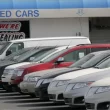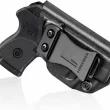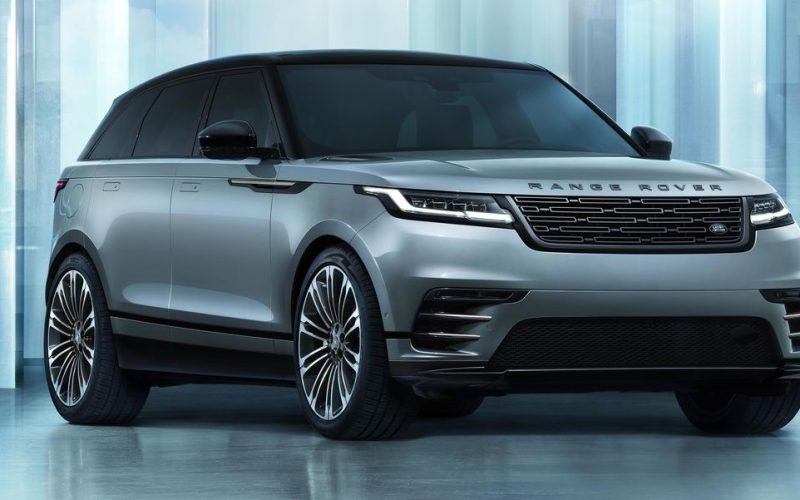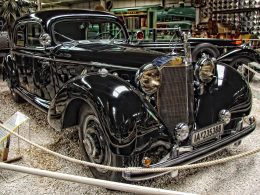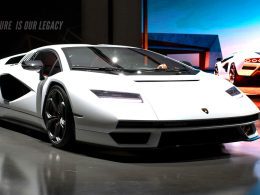Introduction
The Range Rover Velar engine, a mid-size luxury SUV, stands out for its stunning design, cutting-edge technology, and exceptional off-road capability. Its engines, ranging from fuel-efficient diesels to high-performance petrol hybrids, are the core of its dynamic driving experience. However, challenges like turbo wear, diesel particulate filter (DPF) issues, or high mileage can lead to maintenance needs or engine replacement. In 2025, with a robust market for new, used, and reconditioned engines, Velar owners have multiple options to keep their SUV performing at its best. This blog dives into the Velar’s engine lineup, their specifications, common issues, replacement options, costs, and maintenance tips, providing a comprehensive guide for owners seeking reliable solutions.
Overview of Range Rover Velar Engines
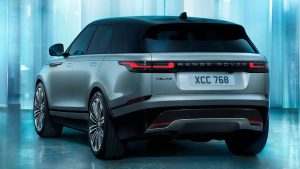
Introduced in 2017, the Range Rover Velar (L560) is built on Jaguar Land Rover’s iQ[D7a] platform and offers a versatile range of engines tailored for efficiency, power, and eco-conscious driving. Below is a breakdown of the primary engines available in 2025, covering diesel, petrol, and hybrid variants.
1. Diesel Engines
- 2.0L Ingenium Turbo-Diesel I4 (D200): Delivers 204 horsepower at 3,750 rpm and 430 Nm of torque at 1,750-2,500 rpm. This 4-cylinder engine achieves 38-40 mpg, making it ideal for fuel-conscious drivers who value efficiency without sacrificing performance.
- 3.0L Turbo-Diesel I6 (D300): Produces 296 horsepower at 4,000 rpm and 650 Nm at 1,500-2,500 rpm. Featuring mild-hybrid technology, it offers 0-60 mph in 6.1 seconds and 35-38 mpg, perfect for towing and long-distance travel.
2. Petrol Engines
- 2.0L Ingenium Turbo Petrol I4 (P250, 2017-2020): Outputs 247 horsepower at 5,500 rpm and 365 Nm at 1,300-4,500 rpm. It reaches 0-60 mph in 7.1 seconds with 22 city/26 highway mpg. Though discontinued in newer models, it remains common in the used market.
- 3.0L Turbo Petrol I6 (P400): A mild-hybrid engine delivering 395 horsepower at 5,500-6,500 rpm and 550 Nm at 2,000-5,000 rpm. It achieves 0-60 mph in 5.2 seconds with 19 city/25 highway mpg, catering to performance-driven drivers.
3. Plug-in Hybrid
- 2.0L Ingenium PHEV I4 (P400e): Combines a 2.0L petrol engine with a 106 kW electric motor for a total of 398 horsepower and 640 Nm. It offers 0-60 mph in 5.1 seconds, up to 33 miles of electric range, and 150-169 mpg when regularly charged, ideal for eco-friendly luxury.
All Velar engines are paired with an 8-speed ZF automatic transmission and all-wheel drive, ensuring smooth power delivery and superior traction across diverse conditions.
Common Issues with Velar Engines
Velar engines are engineered for durability, but high mileage (100,000+ miles) or inadequate maintenance can lead to specific issues:
- Turbocharger Wear: Common in 2.0L Ingenium diesel (D200) and petrol (P250) engines, turbo wear can cause power loss or excessive smoke. Repairs cost $1,000-$2,500.<grok:render type=”render_inline_citation”>4
- DPF Clogging: Diesel engines (D200, D300) require regular highway driving to regenerate the DPF. Urban-heavy use can lead to clogging, with repairs costing $1,500-$3,000.<grok:render type=”render_inline_citation”>9
- Timing Chain Issues: The 3.0L diesel (D300), especially pre-2020 models, may experience timing chain stretch, resulting in noise or engine failure. Repairs range from $1,500-$3,500.<grok:render type=”render_inline_citation”>2
- PHEV Battery and Software: The P400e hybrid may face battery degradation or software glitches, impacting electric range. Repairs cost $2,000-$4,000.<grok:render type=”render_inline_citation”>12
- Injector Failures: Diesel engines can suffer from injector issues due to carbon buildup, with replacements costing $500-$1,500 per injector.<grok:render type=”render_inline_citation”>7
Regular maintenance, including oil changes every 7,500 miles with approved synthetics, premium fuel, and weekly highway driving for diesels, can prevent these issues.<grok:render type=”render_inline_citation”>10
Reconditioned Velar Engines: A Reliable Choice
When repairs become costly or impractical, reconditioned engines offer a cost-effective and reliable solution. These engines are disassembled, cleaned, machined, and rebuilt with new or upgraded components, addressing issues like turbo wear or timing chain failures to restore near-factory performance.<grok:render type=”render_inline_citation”>6
1. Benefits of Reconditioned Engines
- Cost-Effective: 40-60% cheaper than new engines, with prices ranging from $4,500-$10,000 compared to $9,000-$18,000 for new units.<grok:render type=”render_inline_citation”>4
- Improved Reliability: Upgrades, such as enhanced turbo seals or timing chain guides, boost durability.<grok:render type=”render_inline_citation”>2
- Warranties: Suppliers offer 1-3 year warranties, often unlimited mileage.<grok:render type=”render_inline_citation”>8
- Eco-Friendly: Reusing engine cores reduces waste, supporting 2025’s sustainability focus.
- Availability: Reconditioned engines are available for D200, D300, P400, and P400e models.<grok:render type=”render_inline_citation”>3
2. Reconditioning Process
- Inspection: Diagnostics identify issues like compression loss or turbo wear.<grok:render type=”render_inline_citation”>12
- Disassembly and Cleaning: Parts are cleaned to remove carbon and debris.
- Machining and Replacement: Worn components (e.g., pistons, bearings) are replaced, and surfaces are honed.<grok:render type=”render_inline_citation”>6
- Reassembly: Precise torque specs and system calibration ensure performance.
- Testing: Dyno and leak-down tests verify reliability.<grok:render type=”render_inline_citation”>10
This process ensures reconditioned engines meet the Velar’s high-performance standards.
Engine Replacement Options and Costs
Velar owners can choose from new, used, or reconditioned engines:
1. New Engines:
- Cost: $9,000-$12,000 (2.0L D200/P250), $12,000-$16,000 (3.0L D300/P400), $14,000-$18,000 (P400e).
- Pros: Maximum reliability, 2-4 year warranties.
- Cons: High cost, potential delays.<grok:render type=”render_inline_citation”>4
2. Used Engines:
- Cost: $2,500-$4,500 (2.0L D200/P250), $4,000-$6,000 (3.0L D300/P400), $5,000-$7,000 (P400e).
- Pros: Affordable, widely available.
- Cons: Risk of defects, short warranties (30-90 days).<grok:render type=”render_inline_citation”>7
3. Reconditioned Engines:
- Cost: $4,500-$7,000 (2.0L D200/P250), $6,000-$9,000 (3.0L D300/P400), $7,000-$10,000 (P400e).
- Pros: Reliable, cost-effective, eco-friendly, 1-3 year warranties.
- Cons: More expensive than used, requires professional installation.<grok:render type=”render_inline_citation”>8
- Labor Costs: Installation adds $1,500-$3,000 (12-20 hours at $80-$150/hour) due to complex electronics.<grok:render type=”render_inline_citation”>0 Shipping costs $200-$600.<grok:render type=”render_inline_citation”>7 Total costs range from $4,000-$21,000.
Sourcing Velar Engines in 2025
Reliable sources include:
- Specialty Suppliers: Offer reconditioned engines with warranties and detailed rebuild specs.<grok:render type=”render_inline_citation”>3
- Online Marketplaces: eBay and regional platforms list used and reconditioned engines. Verify seller credibility.<grok:render type=”render_inline_citation”>9
- International Suppliers: Provide global shipping, starting at €4,000.<grok:render type=”render_inline_citation”>7
- Land Rover Specialists: Ensure compatibility and quality for Velar engines.<grok:render type=”render_inline_citation”>6
Request service records or rebuild documentation to confirm quality.
Maintenance Tips for Velar Engines
To extend engine life:
- Regular Servicing: Change oil every 7,500 miles with approved synthetics; replace filters annually.<grok:render type=”render_inline_citation”>10
- DPF Management: Drive highways weekly for 20-30 minutes to regenerate DPFs in diesels.<grok:render type=”render_inline_citation”>9
- Turbo Care: Monitor oil leaks and use premium fuel.<grok:render type=”render_inline_citation”>4
- PHEV Maintenance: Charge the P400e battery regularly and update software.<grok:render type=”render_inline_citation”>12
- Diagnostics: Use Land Rover tools to monitor error codes.
Pros and Cons
Pros:
- Versatile engines for efficiency and performance.
- Reconditioned engines offer reliability and value.
- Wide availability in 2025.
- Eco-friendly reconditioned options.
Cons:
- Diesel DPF maintenance is critical.
- Complex electronics raise installation costs.
- Used engines risk defects.
Conclusion
The Range Rover Velar’s engines, from the efficient 2.0L D200 diesel to the powerful P400e hybrid, deliver a premium driving experience. Reconditioned engines provide a reliable, cost-effective solution for replacements in 2025, addressing issues like turbo wear and DPF clogging while supporting sustainability. By sourcing quality engines and following proper maintenance, Velar owners can ensure their SUV continues to excel in luxury and performance.




